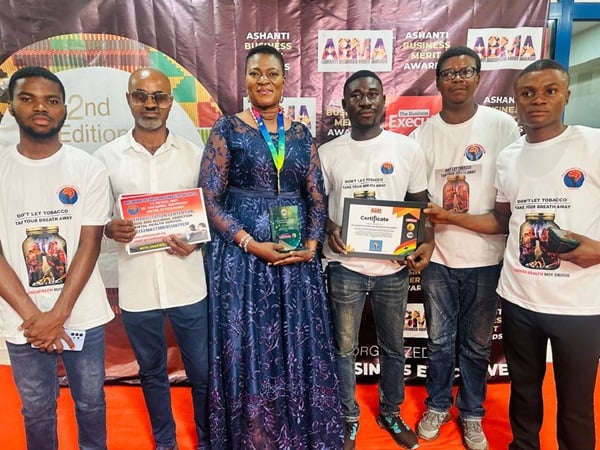The escalating crisis of illicit drug abuse in Ghana demands urgent and comprehensive action from the government, private sector, and community stakeholders. Mrs. Lydia Abena Manu Adofo, CEO of the WillingWay Recovery and Rehabilitation Centre, issued this stark warning during the Ashanti Business Merit Awards and Conference Night, emphasizing the devastating impact of drug addiction on Ghana’s youth and its potential to derail the nation’s human capital development. The current strategies, while commendable, are simply not enough to stem the rising tide of addiction, necessitating a more aggressive and multi-faceted approach. This includes strengthening law enforcement to curb the supply of illicit substances, implementing comprehensive community education programs to raise awareness about the dangers of drug abuse, and expanding rehabilitation facilities to provide adequate support for those struggling with addiction.
Mrs. Manu Adofo, speaking from her experience at the forefront of addiction recovery, highlighted the vital role of rehabilitation centers in helping individuals overcome substance abuse and reintegrate into society as productive citizens. WillingWay, she noted, has been instrumental in supporting numerous individuals on their path to recovery. However, the sheer volume of new addiction cases underscores the inadequacy of relying solely on rehabilitation centers. A truly effective response requires a collaborative effort, forging stronger partnerships between government agencies, local authorities, educational institutions, and families to address the root causes of drug abuse. This collaborative approach should focus on prevention, early intervention, and community-based support systems to create a safety net that catches individuals before they fall prey to addiction.
The private sector also has a crucial role to play in this fight. Drug abuse, Mrs. Manu Adofo argued, is not merely a health crisis but also poses a significant threat to national security and economic stability. She emphasized the alarming rise in drug-related crimes across the country, including the Ashanti Region, which undermines social stability and hinders development. Businesses, therefore, have a vested interest in supporting prevention and recovery initiatives, recognizing that a healthy and productive workforce is essential for economic growth. This support could manifest in various forms, including funding for awareness campaigns, providing resources for rehabilitation centers, and implementing workplace programs that support employees struggling with addiction.
A key component of a successful national strategy is addressing both the supply and demand sides of the drug problem. This requires not only strengthening law enforcement efforts to disrupt drug trafficking networks but also tackling the underlying social and economic vulnerabilities that make individuals susceptible to drug use. Poverty, unemployment, lack of educational opportunities, and social marginalization are all contributing factors that must be addressed through targeted interventions. Creating economic opportunities, improving access to education and healthcare, and strengthening social support systems are crucial steps in reducing the demand for illicit substances.
Mrs. Manu Adofo also appealed for increased government support for rehabilitation facilities, including greater financial allocations to enhance access and improve the quality of services provided. She praised the dedication and professionalism of her staff and collaborators at WillingWay, who work tirelessly to provide compassionate care to recovering addicts despite facing numerous challenges. Adequate funding for these facilities is essential to ensure they have the resources necessary to provide effective treatment, including evidence-based therapies, counseling, and aftercare support to help individuals maintain long-term recovery. Investing in rehabilitation centers is not merely a social responsibility but also a sound economic strategy, as it reduces the long-term costs associated with addiction, such as healthcare expenses, lost productivity, and crime.
The recognition bestowed upon WillingWay at the Ashanti Business Merit Awards, honoring their outstanding contribution to mental health and addiction recovery, served as both a celebration of their achievements and a renewed call to action. Mrs. Manu Adofo reaffirmed her center’s commitment to fighting drug addiction and urged all Ghanaians to unite in this critical endeavor. Building a healthier and more productive nation requires a collective effort, demanding the active participation of individuals, families, communities, government agencies, and the private sector. Only through a concerted and sustained effort can Ghana hope to overcome this formidable challenge and secure a brighter future for its citizens.














